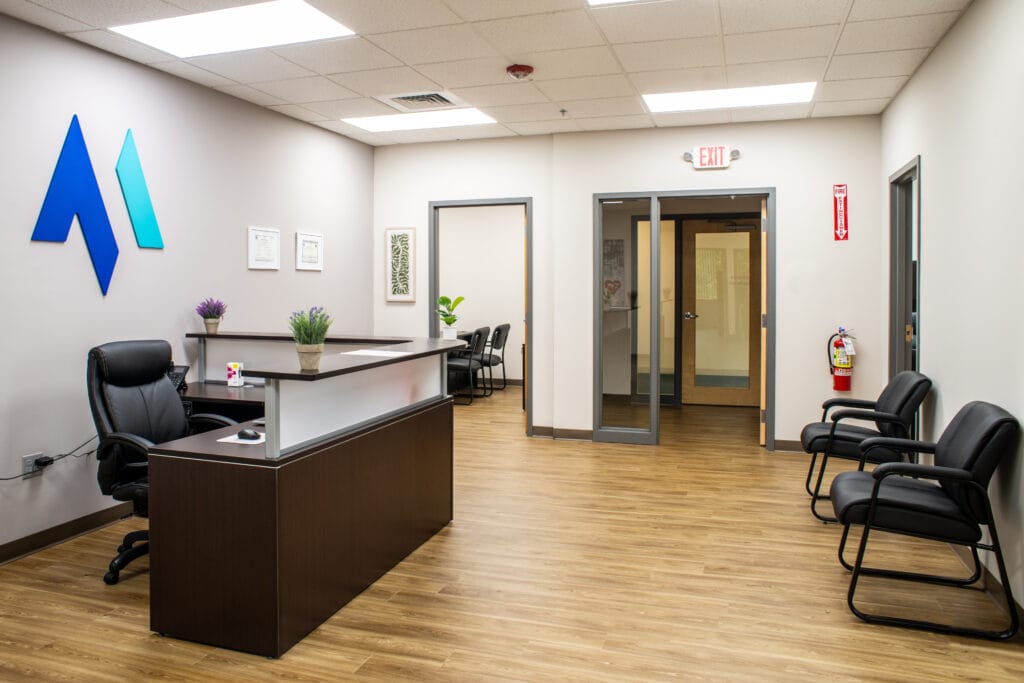(844) 909 2560
Available 24x7, Toll-Free
When it comes to treating substance use disorders, especially opioid and alcohol addictions, finding the right combination of therapies is crucial for long-term recovery. One highly effective approach is medication-assisted treatment (MAT), a method that combines prescription medications with counseling and behavioral therapies. This approach not only reduces cravings and withdrawal symptoms but also helps individuals stabilize their lives and focus on recovery.
Let’s dive into what MAT really is, explore the medications commonly used, and understand how they support the journey to sobriety.
Medication-assisted treatment is a comprehensive approach to treating substance use disorders that integrates the use of FDA-approved medications alongside counseling and therapy. It’s important to stress that MAT is not about replacing one addiction with another. Instead, the medications help normalize brain chemistry, block the euphoric effects of alcohol and opioids, relieve physiological cravings, and stabilize body functions without the harmful highs and lows associated with substance abuse.
Research consistently shows that MAT significantly increases the chances of a successful recovery, reduces illicit drug use, improves patient survival rates, and supports a more manageable and productive lifestyle. It's widely used for treating opioid use disorder (OUD) and alcohol use disorder (AUD), offering a holistic path toward wellness.

Several medications have been approved by the FDA for MAT, each working in different ways depending on the substance involved. Let’s break them down:
Methadone is a long-acting opioid agonist that activates the brain’s opioid receptors but at a much slower and controlled rate than substances like heroin. This slower action helps to reduce cravings, alleviate withdrawal symptoms, and block the euphoric effects of other opioids. Because of its potency and the risk for misuse, methadone must be administered in a regulated clinic setting under strict supervision. It is often an ideal treatment option for individuals with severe opioid use disorder (OUD) who require a highly controlled environment to support their recovery and prevent relapse.
Buprenorphine is another medication used for treating OUD and acts as a partial opioid agonist. It stimulates the brain’s opioid receptors but to a much lesser degree compared to full agonists like heroin or methadone. This action helps diminish cravings, ease withdrawal symptoms, and reduce the potential for misuse. One of the main advantages of buprenorphine is that it can be prescribed in a doctor’s office, making it more accessible than methadone. It is frequently combined with naloxone to further reduce the chances of misuse, providing a safer and more convenient option for many individuals seeking recovery.
Naltrexone (Vivitrol), on the other hand, works differently by acting as an opioid antagonist. It completely blocks the brain’s opioid receptors, preventing any opioid from producing a high. This mechanism eliminates the rewarding effects associated with opioid use and helps deter relapse. However, it is critical that naltrexone only be administered after a person has fully detoxed from opioids; taking it while opioids are still present in the system can trigger sudden and severe withdrawal symptoms. Naltrexone is available in an extended-release injectable form known as Vivitrol, which provides ongoing protection for approximately one month with each dose.
Naltrexone is also commonly used to treat alcohol dependence, although it works slightly differently than when used for opioid use disorder. In the context of alcohol use, naltrexone reduces the pleasurable effects associated with drinking and lowers cravings for alcohol. By dampening the brain’s reward system, it helps individuals resist the urge to drink, making it easier to maintain sobriety and avoid relapse. Naltrexone offers a valuable tool for those who struggle with managing cravings and who need additional support to stay alcohol-free.
Acamprosate (Campral) serves a different purpose in the treatment of alcohol use disorder by helping to stabilize the chemical balance in the brain that becomes disrupted through chronic alcohol consumption. It is particularly effective at reducing the emotional and physical distress that individuals often experience during abstinence. While it does not prevent withdrawal symptoms, acamprosate supports long-term sobriety and is most effective when used after a person has already undergone detoxification. It is ideal for individuals who are committed to remaining abstinent and need help sustaining their recovery over time.
Disulfiram (Antabuse) takes a unique approach to treatment by acting as a deterrent to drinking. It works by causing unpleasant physical reactions—such as nausea, vomiting, and headaches—if alcohol is consumed while taking the medication. Disulfiram does not reduce cravings for alcohol; instead, it relies on negative reinforcement to discourage drinking. It is particularly effective for individuals who are highly motivated to remain sober and want an additional safeguard against relapse. Its effectiveness hinges on a person’s commitment to abstinence and their willingness to use aversion to support their recovery goals.
Each medication used in MAT plays a specific role depending on the individual’s needs, substance history, and recovery goals. Here's how they contribute to the broader recovery process:
When combined with behavioral counseling, therapy, peer support, and other recovery strategies, MAT offers a much stronger foundation for lasting sobriety.
Despite its proven effectiveness, MAT often faces stigma, even within recovery communities. Some people mistakenly believe that using medications is “trading one addiction for another.” However, medications used in MAT are prescribed at safe doses, taken under medical supervision, and designed to support—not undermine—recovery.
Education is crucial in dispelling myths about MAT. By recognizing it as a legitimate, evidence-based treatment, more people can access the help they need without shame or judgment.

If you or a loved one is looking for medication-assisted treatment, call us today at 844-909-2560, or email us at info@metaaddictiontreatment.com. You can also visit any one of our three locations, which are open 24/7:
Don't wait to get help. Start a journey towards recovery today.